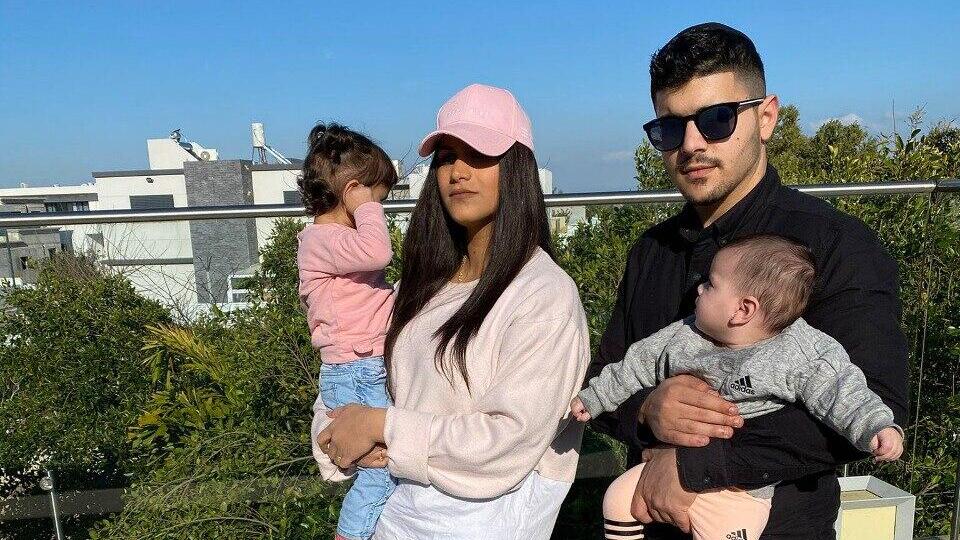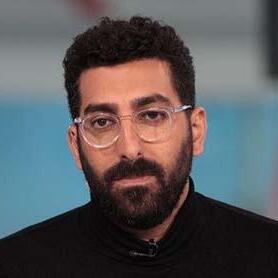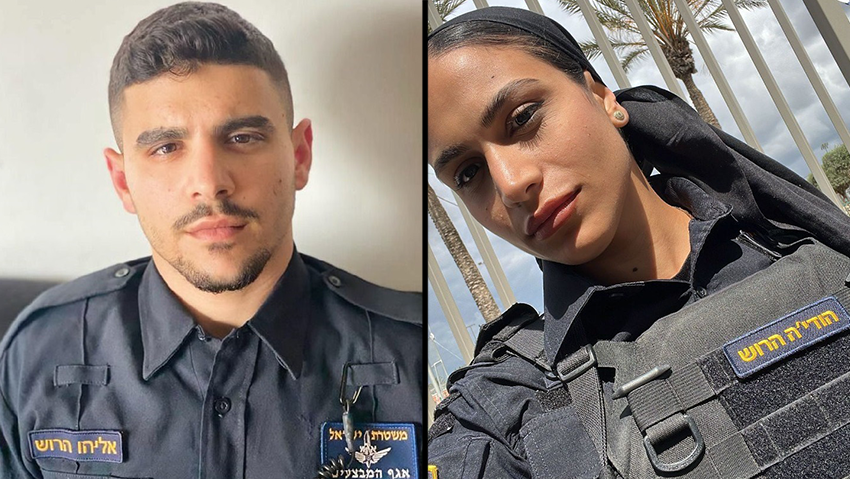Master Sergeant Eliyahu Michael Harush bravely fought the terrorists who invaded the southern city of Sderot on October 7 and fell in the fierce battle that ensued at the city's police station. His widow, Staff Sergeant Hodaya Harush, a detective at the Netivot station, carries on his legacy, breaking ground as an ultra-Orthodox policewoman, bridging the gaps between her community and the police force.
"My husband was the first to respond to the terror attack and the first to fall at the Sderot police station. He was on the night shift that same day," Hodaya recounted.
"On that Saturday, I didn't know exactly what was happening, and that uncertainty is something I wouldn't wish on anyone. On that Saturday, his sister said, 'Maybe he's hiding, maybe he's actually protecting himself.' Without knowing, I told her: I know that Eliyahu is the first to go out to defend and protect his comrades and the citizens. The Israel Police was the first to respond in combat in the south."
"He began his journey in the Israel Police in the ultra-Orthodox Shachar program (mandatory service for Haredim in the police force), and after we got married, he signed a permanent contract at the Sderot station. He was in the process of going to officer training, and then October 7 happened," she said. "Every day I talk about it, whether it's with people, with my daughters, or even with myself. Every day I remind myself that I was married to a hero."
Amid the debate over the enlistment of Haredim, you're a perfect example of an alternative approach, aren't you?
"Yes, there's another way. I grew up in a home that says – according to rabbis who say so – if you're not studying Torah, you need to enlist, and that's what Eliyahu did. Eliyahu saw that he couldn't study Torah, it was hard for him, but he said: I want to give myself to the country, to the citizens. He was a Zionist Haredi, who loved the State of Israel. That's how we were raised. We're Haredi from home, and we also raised a Haredi household. We have three young daughters."
As a Haredi policewoman, are you succeeding in your role? How do you manage, especially after such a great loss, with young daughters at home?
"Even before they buried my Eliyahu, they came to me from the National Police Academy; I was still in training. This course is mainly intended for Haredim, but it also includes people from the general population, and it combines shooting ranges and academic studies. It's an intensive course like any other. During those terrible days I went through, they came to me from the academy and said to me: 'Listen, if you don't want to continue with the course, just tell us.'"
2 View gallery


Eliyahu and Hodaya Harush with two of their daughters
(Photo: Courtesy of the family)
"The first thing I said to them, without hesitation, was that it was Eliyahu who sent my resume; Eliyahu knew what I wanted to do, which was to help Haredi women who couldn't easily approach and speak out because it's very difficult for crime victims to talk about difficult things. I didn't know which direction to take my desire, and then this course came along, and Eliyahu sent my resume. I told them: this is Eliyahu's will. Eliyahu made sure that I joined the Israel Police – and he took care of me well, because they take good care of me – and for me, I'm here out of duty."
"As Haredim, as a Haredi investigator in the police force, our goal is to reach crime victims who were very difficult to approach in the past. It's truly a breakthrough for the Haredi community when a Haredi woman approaches and sees a woman with a head covering, or a Haredi man approaches and sees a Haredi man with a beard – there's openness between us, and there are things that only we understand about each other. I also see it in the field, that there's a significant breakthrough between the Haredi sector and the police, and it's great."




